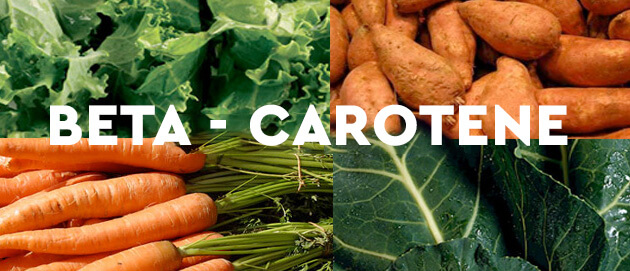BETA CAROTENE
Scientists first started talking about beta-carotene (provitamin A) in 1831, when the German chemist Wackenroder isolated a coloring pigment from yellow turnips. And called it "the elixir of beauty and youth."
Most of all, beta-carotene is contained in carrots. And even the Latin translation of this provitamin means orange root vegetable.
read more...Why one needs beta-carotene (provitamin A)
Beta-carotene is converted to retinol when ingested. That is, it is the precursor (provitamin) of vitamin A. It is fat-soluble and is absorbed only in the presence of fat. Beta-carotene has  two forms: crystalline (purple-red color) and an oily solution (yellow-orange hue).
two forms: crystalline (purple-red color) and an oily solution (yellow-orange hue).
The main task of beta-carotene is to deliver retinol to the body. But along the way, provitamin protects cells from cancer radicals and prevents cardiovascular diseases. It lowers cholesterol and fights the development of atherosclerosis.
Provitamin protects the skin, hair, and nails from the negative effects of the environment, such as blocking ultraviolet radiation. It is also an effective healer for eye diseases. It slows down the development of cataracts and glaucoma and preserves vision even in old age.
Doctors recommend beta-carotene as a means to strengthen the immune system in the treatment of colds, with increased training and mental stress. It is prescribed for cancer, stomach ulcers, gastritis, and dysbiosis.
Lack of vitamin beta-carotene (provitamin A)
Dry and flaky skin indicates that the body needs beta-carotene. This is especially true in winter and early spring when vegetables and fruits can't be found. Also, a lack of provitamin is indicated by acne, weak hair, and flaky nails. If you have poor vision, you should also think about it.



